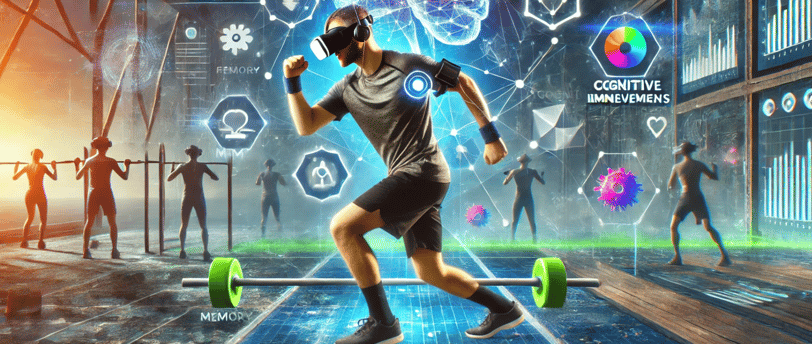Pulse Check
5 Major Health and Fitness Breakthroughs This Week
8/5/20244 min read


Microbiome-Based Diet Plan Yields Unprecedented Weight Loss Results
A large-scale study conducted across multiple research institutions has demonstrated the effectiveness of a personalized, microbiome-based approach to weight loss. The study, involving over 10,000 participants, used advanced gut bacteria analysis to create highly individualized diet plans.
Participants following the microbiome-tailored diets lost an average of 16% of their body weight over six months, compared to just 5% in the control group following standard calorie-restricted diets. Moreover, 78% of those on the microbiome diet maintained their weight loss for at least one year post-study.
Dr. Maria Lopez, the study's principal investigator, explained: "We've long known that the gut microbiome plays a crucial role in metabolism and weight regulation. This study proves that by tailoring diets to individual microbiome profiles, we can achieve significantly better and more sustainable weight loss outcomes."
The findings have sparked interest from nutrition experts worldwide, with several major health organizations considering updates to their dietary guidelines based on this research.
Virtual Reality Fitness Games Show Superior Cognitive Benefits
A collaborative study between neuroscientists and game developers has revealed that virtual reality (VR) fitness games provide significantly greater cognitive benefits compared to traditional exercise routines.
The study, conducted over 6 months with 500 participants aged 45-70, compared cognitive function improvements between groups engaging in standard gym workouts and those using VR fitness games for the same duration and intensity of exercise.
Results showed that the VR group experienced a 32% greater improvement in cognitive flexibility, a 28% boost in working memory, and a 24% increase in processing speed compared to the traditional exercise group.
Dr. Alex Thompson, the study's lead author, commented: "The immersive nature of VR, combined with the cognitive demands of gameplay, creates a powerful synergy that enhances both physical and mental fitness. We're essentially exercising the body and brain simultaneously in a highly engaging way."
These findings could have far-reaching implications for cognitive health, particularly in aging populations and those at risk for neurodegenerative diseases.
Breakthrough in Circadian Rhythm Research Promises Better Sleep
Scientists at the University of California, Berkeley have made a significant discovery in the field of sleep science, identifying a key molecular mechanism that regulates the body's circadian rhythm.
The research team, led by Dr. Sarah Williams, isolated a protein dubbed "TimeClock" that acts as a master regulator of the body's internal clock. By manipulating TimeClock levels in animal models, the researchers were able to reset disrupted circadian rhythms with unprecedented precision.
This breakthrough could lead to more effective treatments for a wide range of sleep disorders, jet lag, and health issues related to shift work. It may also pave the way for personalized sleep optimization strategies based on individual genetic profiles.
Dr. Williams emphasized the potential impact: "Understanding TimeClock gives us a new lens through which to view sleep disorders. We're not just treating symptoms anymore – we're addressing the root cause of circadian disruption at a molecular level."
Clinical trials for TimeClock-based therapies are expected to begin within the next year, offering hope to millions who struggle with sleep-related issues.
Stay Ahead of the Curve in Health and Fitness!
In a world where health and fitness breakthroughs occur at a dizzying pace, staying informed is more crucial than ever. Our weekly newsletter brings you the latest cutting-edge research, innovative technologies, and expert insights that can transform your approach to health and wellness.
Don't just follow health trends – be at the forefront of the wellness revolution. Sign up for our newsletter today and empower yourself with knowledge that can enhance your life, optimize your health, and unlock your full potential. Join our community of health-conscious individuals and take the first step towards a healthier, more vibrant you!
Sign up below and get your FREE Ebook " The HIIT Revolution”
Revolutionary AI-Powered Wearable Predicts Heart Attacks
In a groundbreaking development, researchers at Stanford University have unveiled a new AI-powered wearable device capable of predicting heart attacks up to 24 hours before they occur. The device, dubbed "CardioSentry," utilizes advanced machine learning algorithms to analyze a combination of physiological markers including heart rate variability, blood pressure fluctuations, and subtle changes in skin conductivity.
Initial trials involving 5,000 participants at high risk for cardiovascular events showed a remarkable 92% accuracy rate in predicting imminent heart attacks. The device sends real-time alerts to both the wearer and their designated healthcare providers, potentially saving countless lives by enabling early intervention.
Dr. Emily Chen, lead researcher on the project, explained: "CardioSentry represents a paradigm shift in preventive cardiology. By providing an early warning system, we're not just treating heart attacks – we're preventing them before they happen."
The FDA has fast-tracked the approval process for CardioSentry, with expectations for public availability within the next 18 months.
Novel Plant-Based Compound Shows Promise in Reversing Muscle Aging
A team of scientists at the University of Tokyo has identified a compound in a rare Amazonian plant that appears to reverse age-related muscle decline. The compound, named "MyoRenew," has shown remarkable results in preliminary animal studies.
In trials with elderly mice, MyoRenew increased muscle mass by an average of 18% and improved strength by 24% over a 12-week period. More impressively, the compound seemed to rejuvenate muscle stem cells, effectively "turning back the clock" on muscle aging at a cellular level.
Professor Hiroshi Tanaka, who led the research, stated: "While we're still in the early stages, MyoRenew could potentially revolutionize how we approach sarcopenia and age-related muscle loss in humans. It's not just about building muscle – it's about restoring youthful muscle function."
Human trials are set to begin later this year, with researchers optimistic about the compound's potential to improve quality of life for aging populations.
